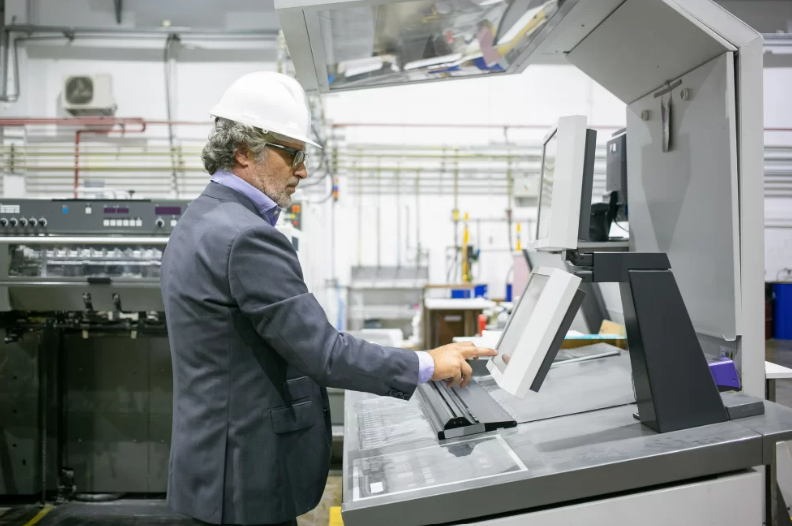CNC Machining 101: Understanding the Basics of Computerised Manufacturing
Manufacturing processes have progressed with evolving technology. Earlier, every product manufactured had to be done manually with the help of tools. These tools have gradually gained automation, and one of them is the CNC machine. CNC machining has made the process of manufacturing completely automatic, requiring no human intervention if the correct code is entered at the start.
How does a CNC machine work? What are its uses? Read on to learn more about CNC machining and how it can benefit your business if you use it for your products.
What Is CNC Machining?
CNC or control numerical control machining involves using a programming code to direct tools to form accurate designs of various products. The procedure eliminates human intervention and can be programmed to perform complex design processes efficiently. The G-code represents the instructions provided to the machine to manufacture a product which it follows religiously.
So, how does a CNC machine work? A CNC machine is first fed a G-code, which involves instructions on moving tools and machining processes. Next, a raw base made of a metal like aluminium or plastic is provided to the machine, which is then moulded automatically to obtain the final product without any external influence.
What Are the Applications of CNC Machining?
The main applications of CNC machines are described below:
Construction Industry
The construction industry, especially carpentry work, utilises CNC manufacturing in Australia. Manufacturing precise parts, which a particular door, hinge or slab requires careful work, is done using CNC technique. The precision and the quality of manufacturing are parallel to none. The exact dimensions are also followed by the machine to deliver a customised product to suit certain needs.
Dental Industry
Dental care needs require high-precision work, which is not available with other manufacturing methods. CNC machines can safely design crowns for teeth and other products with extreme precision. Accurate results with tooth experiments are available only with precise moulds. CNC machines resolve this issue with automated machining processes to match patient needs.
Transport Industry
The transport industry also needs precise machine parts that can only be designed using CNC manufacturing in Australia. Precision is important to carefully craft parts from aeroplanes and other vehicles crucial to the working mechanism. The manufactured products are durable and reliable, making them appealing options for high-stake needs in the transportation industry.
Research
The research space requires designing various parts and complete products to test what suits the final product the best. Many companies have dedicated research and development teams that use CNC machines to manufacture parts whilst testing their utility efficiently. The process suits various material forms making it suitable for various industrial fields.
What Are the Advantages of CNC Machining?
Here are the main benefits of using CNC machining over other traditional methods to manufacture parts and products:
Extreme accuracy
The technique used in CNC machining is designed to be highly accurate. Sharp cuts with no defects are produced with each product manufactured by the machine. Precision tools are used in the machining process to obtain exact designs, which are way better than other methods involving human intervention. As a result, complicated designs can be manufactured easily with CNC machining.
Efficiency
The machining process has very fast turnaround times, which allows efficient manufacturing processes. A machining manufacturer facilitates multiple designing processes without wasting time, contributing to better productivity. This leads to shorter lead and production time, which helps you have a reliable supply process.
Cost-effective
A great benefit of using CNC machining is lowering rates in the manufacturing process. As a result, you can manufacture products at lower margins, resulting in increased profit rates and less waste generation. In addition, the savings from using CNC can be used in other sectors or departments to gain more profits from the manufacturing process.
Large-scale manufacturing
CNC machines are perfect for recreating designs repeatedly without producing any changes. This uniformity is essential in the mass production of products that make up a single order. The products can be made of all significant materials like aluminium and plastic. The outcomes show no faults and are very similar to one another, making the machining manufacturer effective.
Increased product and tool lifespan
CNC machines are designed with durable tools that are not heavily exploited in manufacturing. As a result, the tools don’t bear much damage compared to other manufacturing methods, which leads to greater lifespans. In addition, the products designed are sturdy and durable, increasing their lifespan without requiring frequent repairs.
McNeall Plastics: Helping Businesses Through Plastic Engineering and Manufacturing
CNC machining is a beneficial manufacturing process with excellent attention to detail and accuracy.
If you’re looking for a machining manufacturer, McNeall Plastics is the perfect choice for all your machining needs. We are experts in this field and have been in the manufacturing industry for 50 years. We can assist you with simple queries like how a CNC machine work and with difficult decisions about the correct model which suits your needs. Our products are reliable and efficient.

